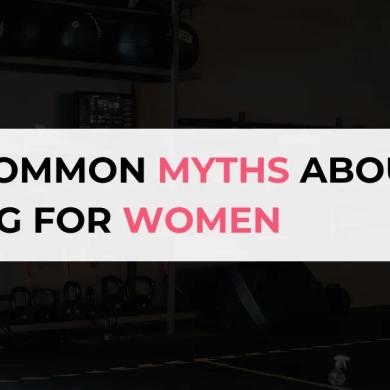How Sleep Impacts Your Growth Hormones and Fitness Goals
When it comes to reaching fitness goals—whether it’s building muscle, losing fat, or improving overall health—most people focus on their training routines and diet plans. However, one often overlooked factor that can make or break your progress is sleep. Sleep is not just about resting; it plays a crucial role in your body’s ability to repair, recover, and grow. More specifically, the relationship between sleep and growth hormones is vital for anyone looking to optimize their fitness goals. In this article, we’ll explore how sleep affects your growth hormones and what that means for your fitness journey.
Why Growth Hormones Are Critical for Fitness
Growth hormones (GH), particularly human growth hormone (HGH), are key players in muscle recovery, fat metabolism, and overall physical performance. Produced in the pituitary gland, HGH is responsible for promoting tissue growth, muscle repair, and cell regeneration. Without adequate levels of this hormone, achieving your fitness goals becomes significantly harder.
For those looking to build muscle or lose fat, the release of growth hormones during sleep is especially important. Growth hormones facilitate protein synthesis, repair muscle tissue damaged during workouts, and promote fat oxidation, which helps with weight management. In short, adequate levels of HGH are essential for both recovery and progress in fitness.
Sleep and Growth Hormone Production: What’s the Connection?
The majority of HGH is released during deep sleep, particularly during the slow-wave sleep (SWS) stages, also known as deep non-REM sleep. During this phase, the body goes into full recovery mode, allowing growth hormones to work their magic. Research shows that up to 70% of daily HGH secretion happens during sleep, making quality rest an indispensable component of muscle growth and fat loss.
Disrupted or inadequate sleep significantly impacts the release of growth hormones. When you don’t get enough deep sleep, HGH secretion is reduced, leading to slower recovery, diminished muscle growth, and even an increased likelihood of fat gain. The key takeaway? Poor sleep habits can dramatically undermine your fitness efforts.
How Sleep Impacts Muscle Recovery and Fitness Gains
Muscle recovery is essential for making progress in any fitness routine. When you exercise, tiny tears occur in your muscle fibers, and during recovery, these fibers are repaired, leading to stronger, bigger muscles. Sleep is when the bulk of this repair happens, and growth hormones are the driving force behind it.
Sleep Stages and Recovery
Not all sleep stages are equal when it comes to muscle recovery. Deep sleep is the most crucial phase for the release of HGH and other anabolic hormones, which help in tissue repair and muscle growth. During this time, your body repairs muscles, replenishes energy stores, and flushes out toxins accumulated during the day.
If you skip out on deep sleep, you’re missing the window for optimal muscle recovery. Over time, this can lead to impaired performance, slower muscle growth, and even increased risk of injury. Athletes who consistently prioritize sleep often see faster recovery and improved performance.
Cortisol: The Stress Hormone That Disrupts Growth Hormones
While growth hormones play a role in muscle growth and fat loss, cortisol—the so-called “stress hormone”—can have the opposite effect. High cortisol levels break down muscle tissue, increase fat storage, and elevate stress, all of which counteract your fitness goals. Poor sleep raises cortisol levels, creating a hormonal imbalance that can sabotage your progress.
Cortisol and Sleep Deprivation
When you’re sleep-deprived, your body produces more cortisol. High cortisol not only impedes muscle recovery but also disrupts the body’s natural production of HGH. This makes it harder for your body to repair muscle tissue and recover from workouts. Additionally, elevated cortisol levels can lead to fat retention, particularly around the abdominal area, which is not conducive to weight loss or muscle definition.
Balancing cortisol and growth hormones is essential for those aiming to reach their fitness goals. Prioritizing good sleep can help lower cortisol levels and allow HGH to take over, facilitating better muscle repair and fat burning.
Sleep Deprivation and Its Effects on Fitness Performance
It’s not just muscle growth and fat loss that are affected by sleep; your overall fitness performance takes a hit when you’re sleep-deprived. Lack of sleep can reduce your energy levels, decrease strength, impair coordination, and even slow your reaction times. This makes it much harder to perform well in the gym, on the track, or in any other physical activity.
Reduced Strength and Endurance
Studies have shown that individuals who don’t get enough sleep experience a drop in both strength and endurance. This means that not only are your muscles not recovering properly, but you’re also less capable of pushing yourself during workouts. Over time, this can lead to stalled progress and even regression in your fitness levels.
Decreased Motivation
Sleep deprivation also messes with your mental game. When you’re tired, you’re less likely to have the motivation to hit the gym or follow through with your workout routine. Furthermore, you’re more prone to make poor nutritional choices, which can further set back your fitness goals.
Ensuring you get at least 7-9 hours of quality sleep each night can keep you at peak performance, both mentally and physically.
Sleep and Fat Loss: How They’re Related
Many people focus on diet and exercise when trying to lose fat, but sleep plays an equally important role. When you’re sleep-deprived, your body’s fat-burning processes are significantly impaired.
Insulin Sensitivity and Fat Storage
Sleep affects how your body responds to insulin, the hormone that regulates blood sugar levels. Poor sleep reduces insulin sensitivity, meaning your body has a harder time processing sugars, leading to more fat storage. Increased fat storage, particularly around the abdomen, can derail your weight loss efforts.
Hunger Hormones: Ghrelin and Leptin
Lack of sleep also affects the hormones that regulate hunger—ghrelin and leptin. Ghrelin, which stimulates appetite, increases when you’re sleep-deprived, while leptin, the hormone that signals fullness, decreases. This hormonal imbalance makes you more likely to overeat and indulge in unhealthy foods, further impeding fat loss.
If fat loss is one of your fitness goals, ensuring you get adequate, quality sleep is crucial. Better sleep helps regulate your hunger hormones, improves insulin sensitivity, and allows your body to burn fat more effectively.
Practical Tips to Improve Sleep for Better Fitness Results
Now that we’ve established how important sleep is for growth hormones and fitness goals, let’s look at some actionable steps to improve your sleep quality.
Stick to a Consistent Sleep Schedule
Going to bed and waking up at the same time every day helps regulate your internal clock, making it easier for your body to fall asleep and wake up naturally. Consistency is key to getting the deep sleep needed for HGH production.
Create a Sleep-Inducing Environment
Your bedroom environment plays a big role in how well you sleep. Keep your room dark, quiet, and cool to encourage better sleep. Blackout curtains, white noise machines, and a comfortable mattress can all make a significant difference.
Limit Screen Time Before Bed
Blue light from smartphones, tablets, and computers can interfere with your body’s natural production of melatonin, a hormone that helps regulate sleep. Aim to turn off electronic devices at least an hour before bed, or use a blue light filter if you can’t avoid screens altogether.
Incorporate Relaxation Techniques
Stress is a big sleep disruptor, and as mentioned earlier, high stress equals more cortisol, which interferes with growth hormone production. Practicing relaxation techniques like deep breathing, meditation, or gentle yoga before bed can help lower cortisol levels and improve sleep quality.
Avoid Stimulants Late in the Day
Caffeine and nicotine can stay in your system for hours and disrupt your sleep patterns. Avoid consuming these stimulants in the late afternoon and evening to ensure they don’t interfere with your ability to fall asleep.
Conclusion
Sleep is a critical factor in maximizing the release of growth hormones, enhancing muscle recovery, and ultimately reaching your fitness goals. Without adequate sleep, your body cannot produce enough HGH, which impairs muscle growth and fat loss. Additionally, poor sleep raises cortisol levels, increases fat storage, and hinders your workout performance. Prioritizing quality sleep is just as important as your diet and exercise routine when it comes to achieving the best fitness results.
FAQs
How does sleep impact muscle growth?
Sleep, particularly deep sleep, is when most muscle recovery and growth hormone release occur. Without sufficient rest, your body cannot repair muscle tissue effectively.
Can poor sleep affect weight loss?
Yes, poor sleep raises cortisol levels and disrupts insulin sensitivity, leading to increased fat storage and impaired fat-burning capabilities.
What is the relationship between sleep and growth hormones?
Growth hormones are primarily released during deep sleep, helping with muscle repair, fat metabolism, and overall tissue growth. Lack of sleep reduces HGH production, hindering recovery.
How many hours of sleep are ideal for muscle growth?
Experts recommend 7-9 hours of sleep per night to ensure optimal growth hormone release and muscle recovery.
Can stress from lack of sleep reduce fitness gains?
Yes, sleep deprivation increases cortisol, a stress hormone that breaks down muscle tissue and impairs recovery, making it harder to achieve fitness gains.
How does sleep affect fitness motivation?
Lack of sleep reduces both physical and mental energy levels, leading to decreased motivation and a higher likelihood of skipping workouts.









Add comment